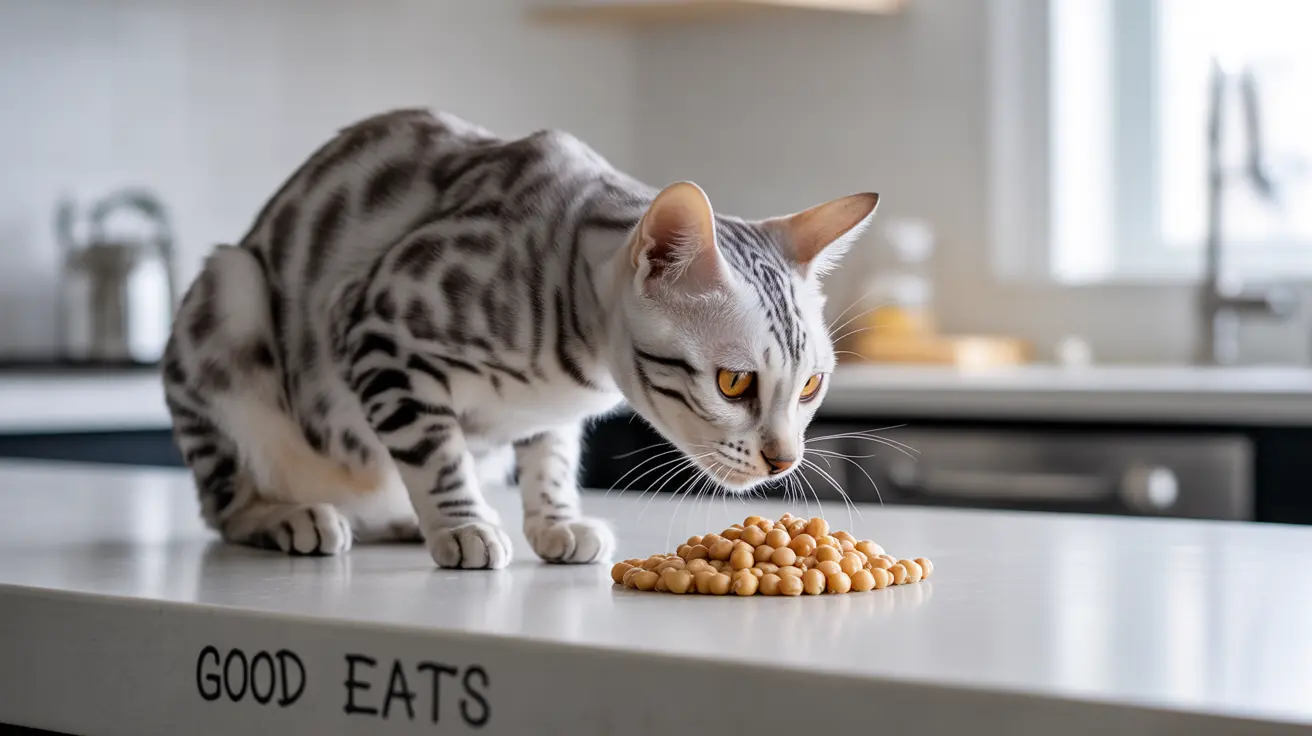If you've ever wondered whether your feline friend can safely eat garbanzo beans (also known as chickpeas), you're not alone. As pet owners become more conscious about their cats' diets, questions about human foods like chickpeas frequently arise. While these legumes aren't toxic to cats, there are important considerations regarding their safety and nutritional value in a feline diet.
In this comprehensive guide, we'll explore everything you need to know about cats and garbanzo beans, including safety concerns, potential benefits, and proper serving guidelines to ensure your pet's wellbeing.
Understanding Cats' Nutritional Needs
Before diving into whether cats can eat garbanzo beans, it's crucial to understand that cats are obligate carnivores. This means they require animal-based proteins to thrive and maintain optimal health. Their digestive systems are specifically designed to process meat, not plant matter.
Unlike humans or dogs, cats have evolved with specific dietary requirements that can only be met through animal proteins. Their bodies need essential nutrients like taurine and arachidonic acid, which are absent in plant-based foods like chickpeas.
Safety and Risks of Feeding Chickpeas to Cats
While garbanzo beans aren't toxic to cats, they come with several potential risks:
- Digestive difficulties due to cats' limited ability to process plant proteins
- Possible gastrointestinal upset, including bloating and gas
- Risk of choking on whole chickpeas
- Potential for allergic reactions
Proper Preparation Methods
If you decide to offer chickpeas to your cat, follow these guidelines:
- Cook them thoroughly until soft
- Avoid seasonings, especially garlic and onion
- Mash or puree them to prevent choking
- Serve plain, without oils or spices
- Start with tiny amounts to monitor reactions
Nutritional Value and Limitations
Chickpeas contain several nutrients, including protein, fiber, and minerals. However, these benefits come with significant limitations for cats:
- Incomplete protein profile lacking essential amino acids
- Difficult-to-digest plant fiber
- Insufficient levels of crucial feline nutrients
- Potential interference with proper nutrient absorption
Guidelines for Serving Chickpeas to Cats
If you choose to offer chickpeas to your cat, follow these important rules:
- Limit portions to 1-2 chickpeas maximum
- Serve only occasionally as a treat
- Never replace regular cat food with chickpeas
- Monitor for any adverse reactions
- Discontinue if digestive issues occur
Frequently Asked Questions
Is it safe for cats to eat garbanzo beans or chickpeas, and what are the risks?
While not toxic, garbanzo beans pose potential risks including digestive issues and choking hazards. They're safe only in small, well-prepared amounts and should never be a dietary staple.
How much garbanzo bean can I give my cat without causing digestive problems?
Limit portions to 1-2 cooked, mashed chickpeas occasionally. Start with a tiny amount and monitor your cat's reaction before offering more.
Can cats get any nutritional benefits from eating chickpeas, and are they good for feline health?
While chickpeas contain some nutrients, they offer minimal benefits for cats since felines can't efficiently process plant-based proteins. Their nutritional needs are better met through meat-based foods.
What are the best ways to prepare chickpeas for cats, and which seasonings should I avoid?
Serve chickpeas plain, well-cooked, and mashed. Avoid all seasonings, especially garlic, onion, and salt, as these can be toxic to cats.
Should cats eat chickpeas as a regular part of their diet, or only as an occasional treat?
Chickpeas should only be given as an occasional treat, if at all. They should never be a regular part of a cat's diet, as cats require animal-based proteins for optimal health.
Conclusion
While cats can technically eat garbanzo beans in small amounts, they offer minimal nutritional benefits and could potentially cause digestive issues. As responsible pet owners, it's best to stick to a properly balanced, meat-based diet formulated specifically for felines. If you choose to offer chickpeas as treats, do so sparingly and with careful preparation.






